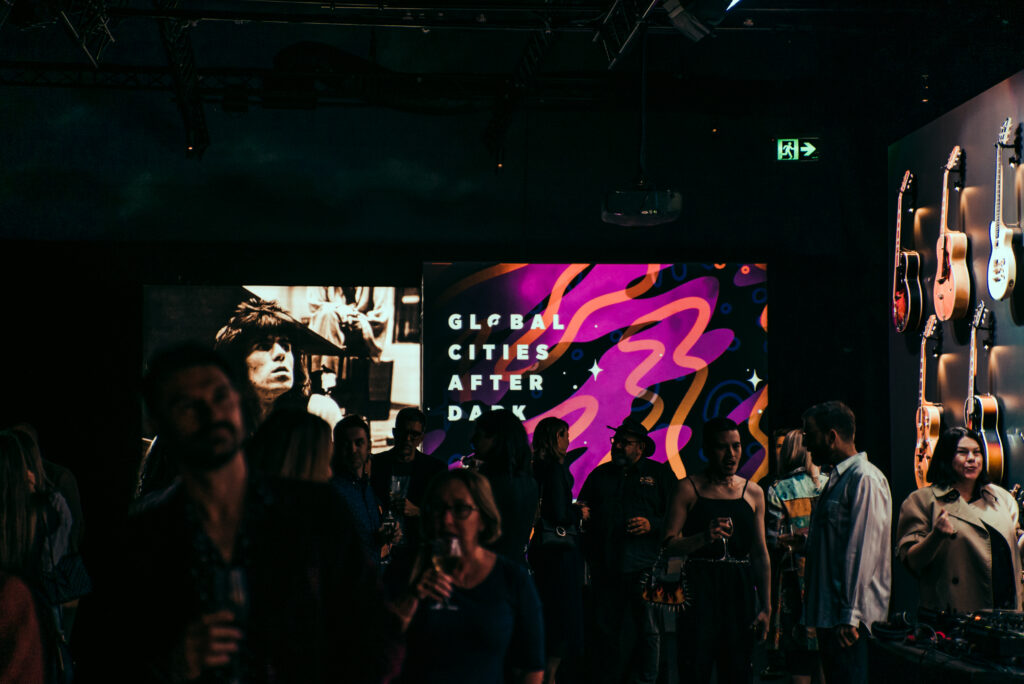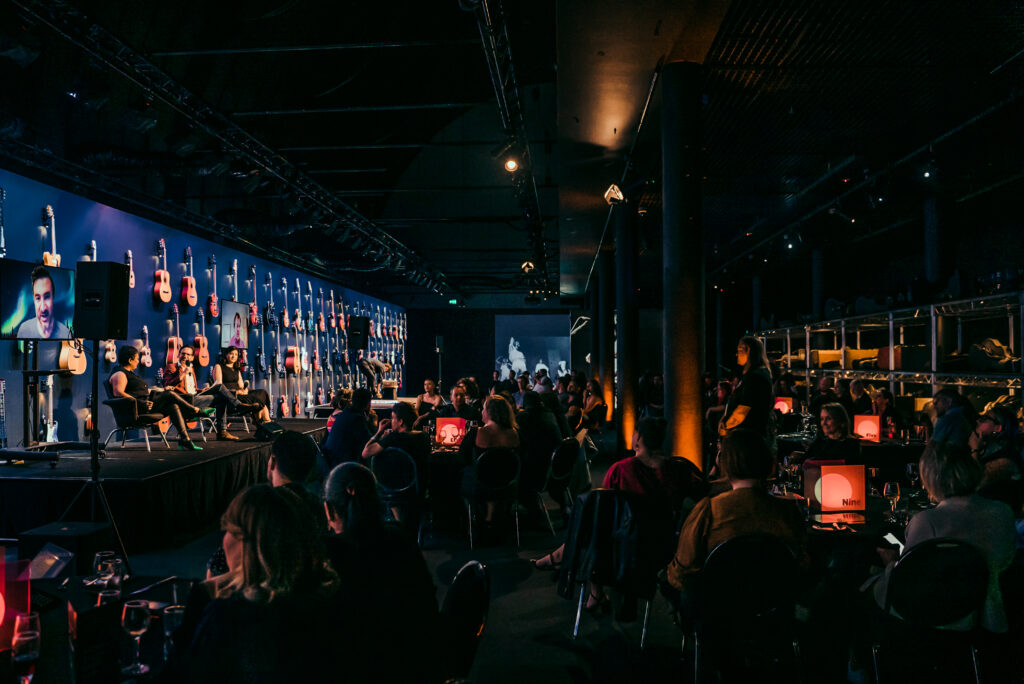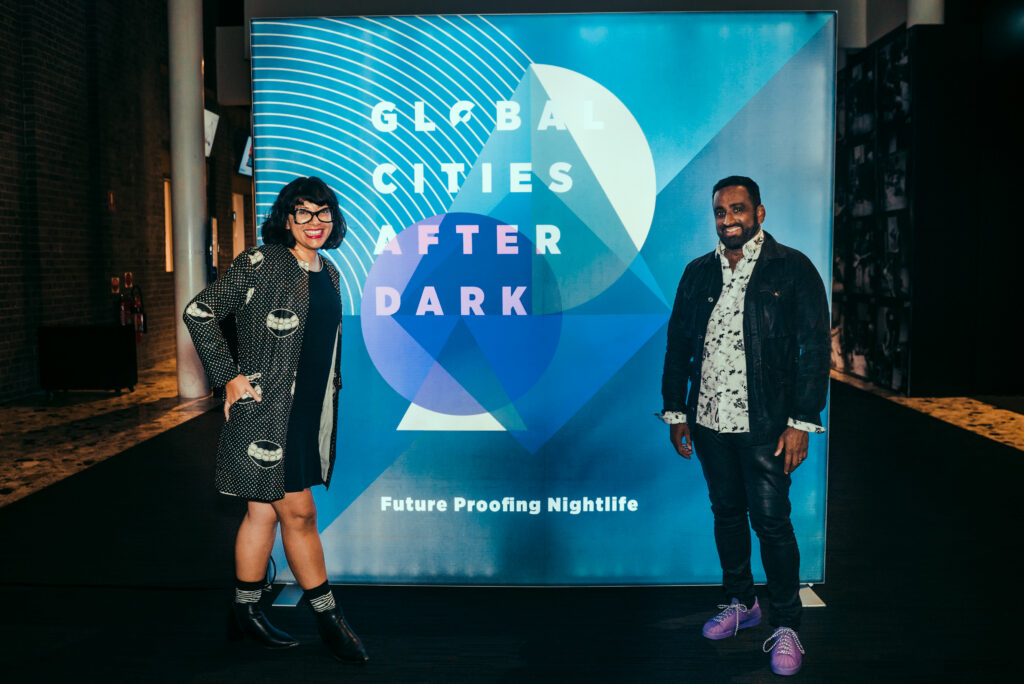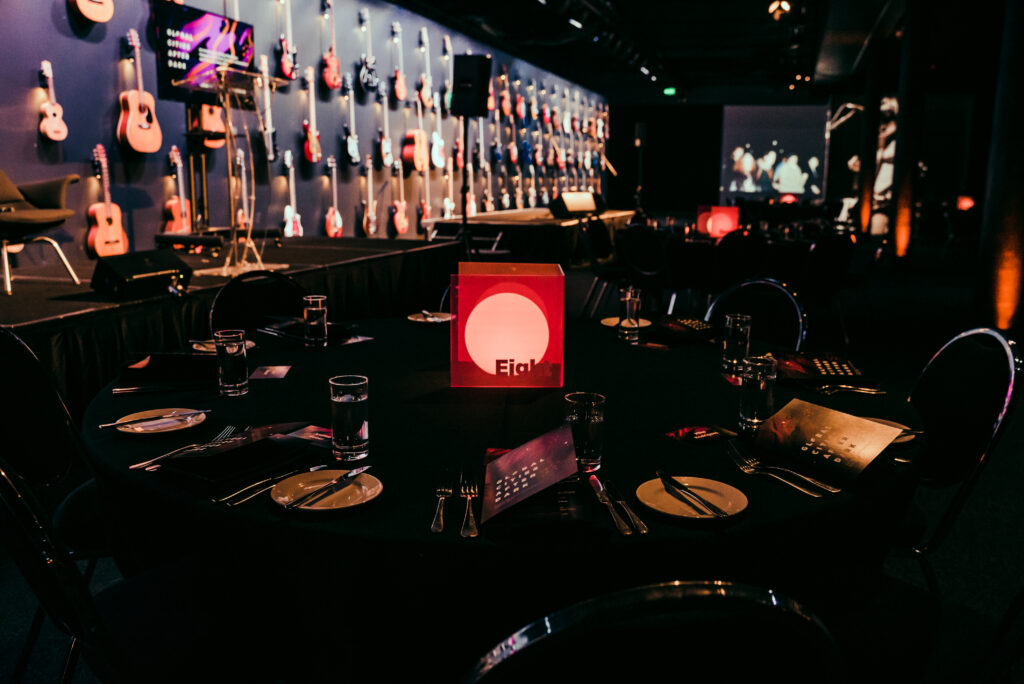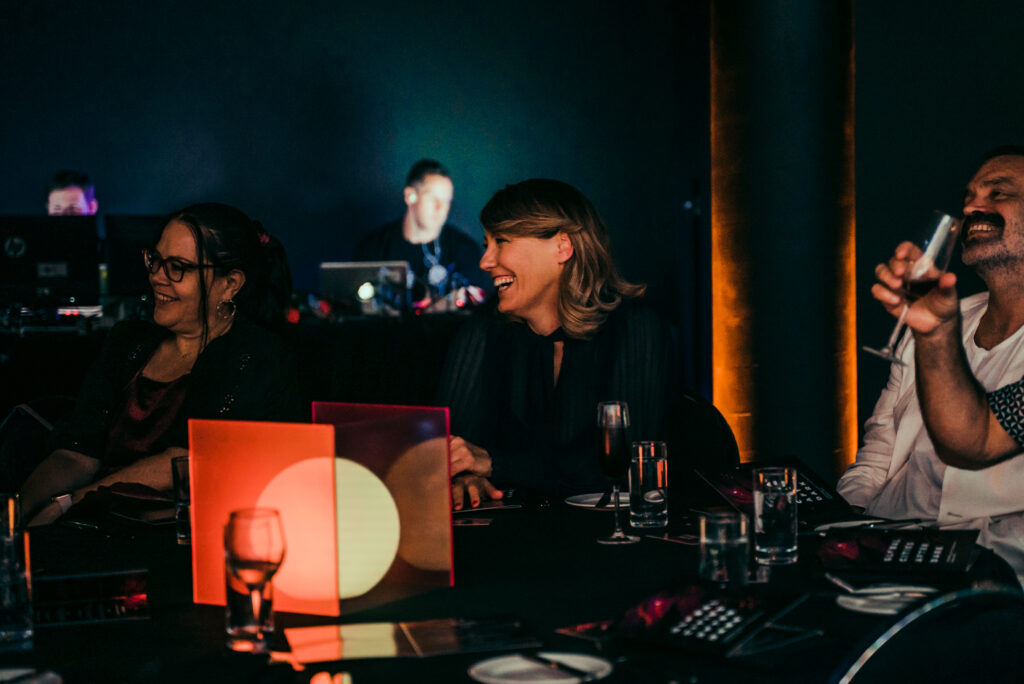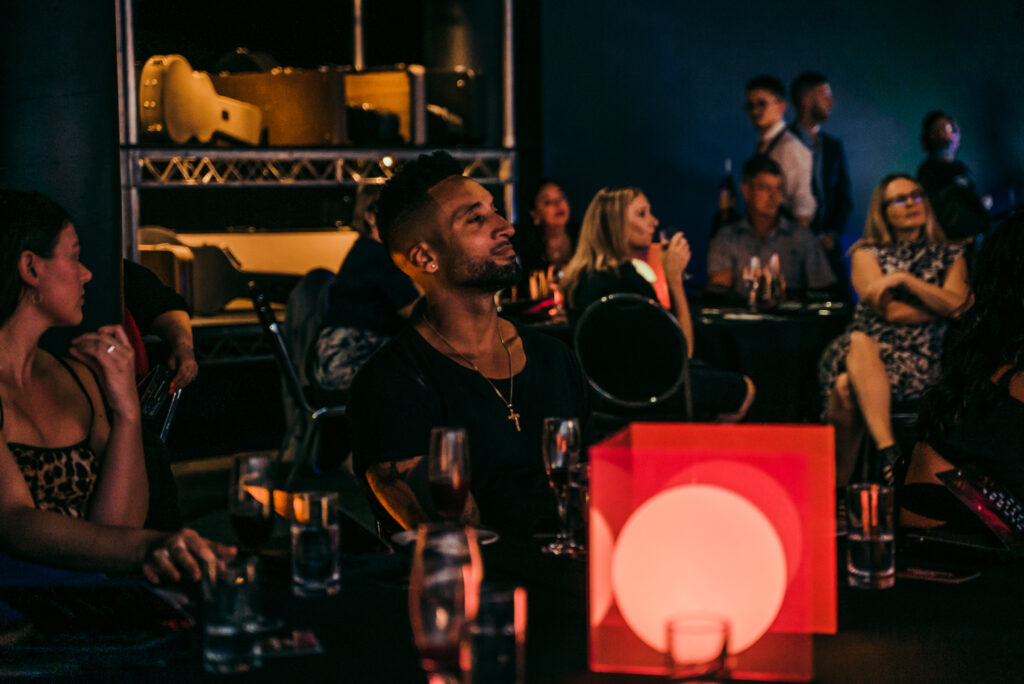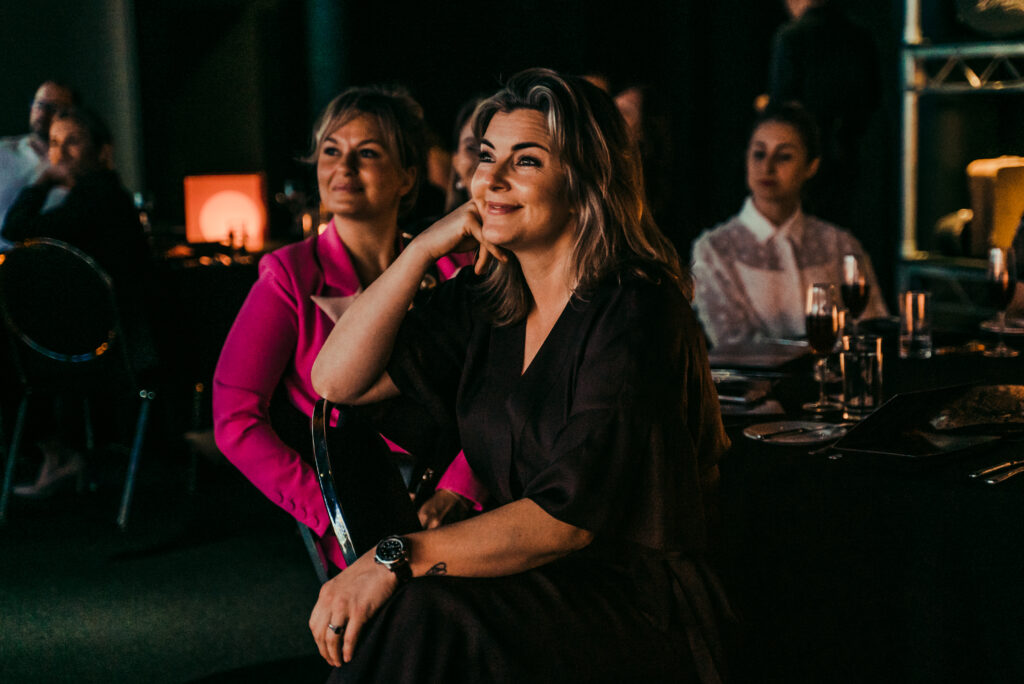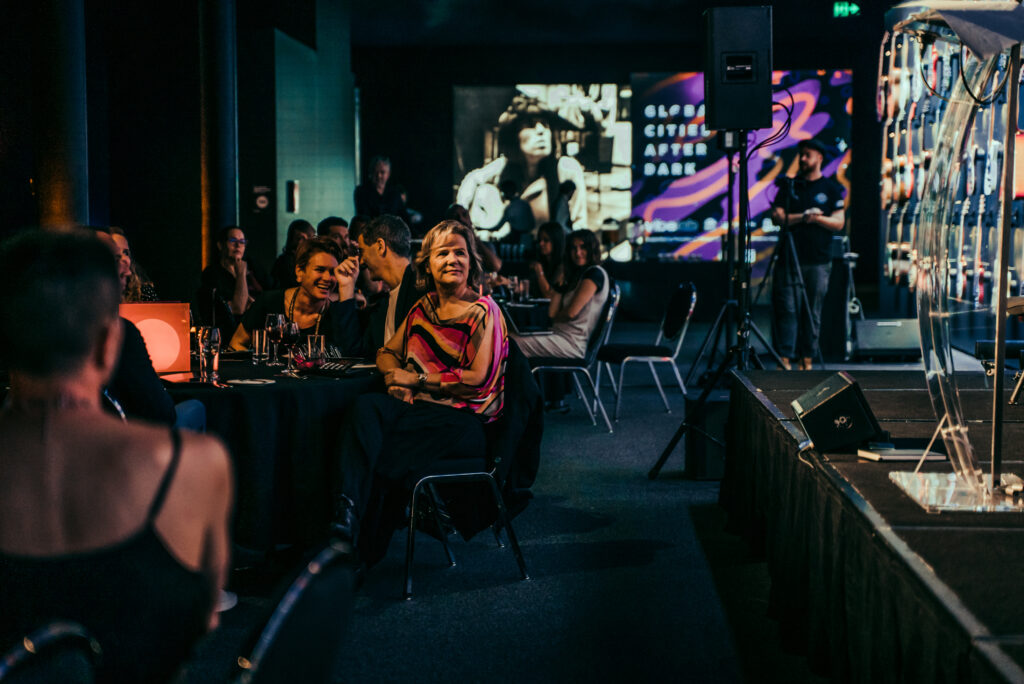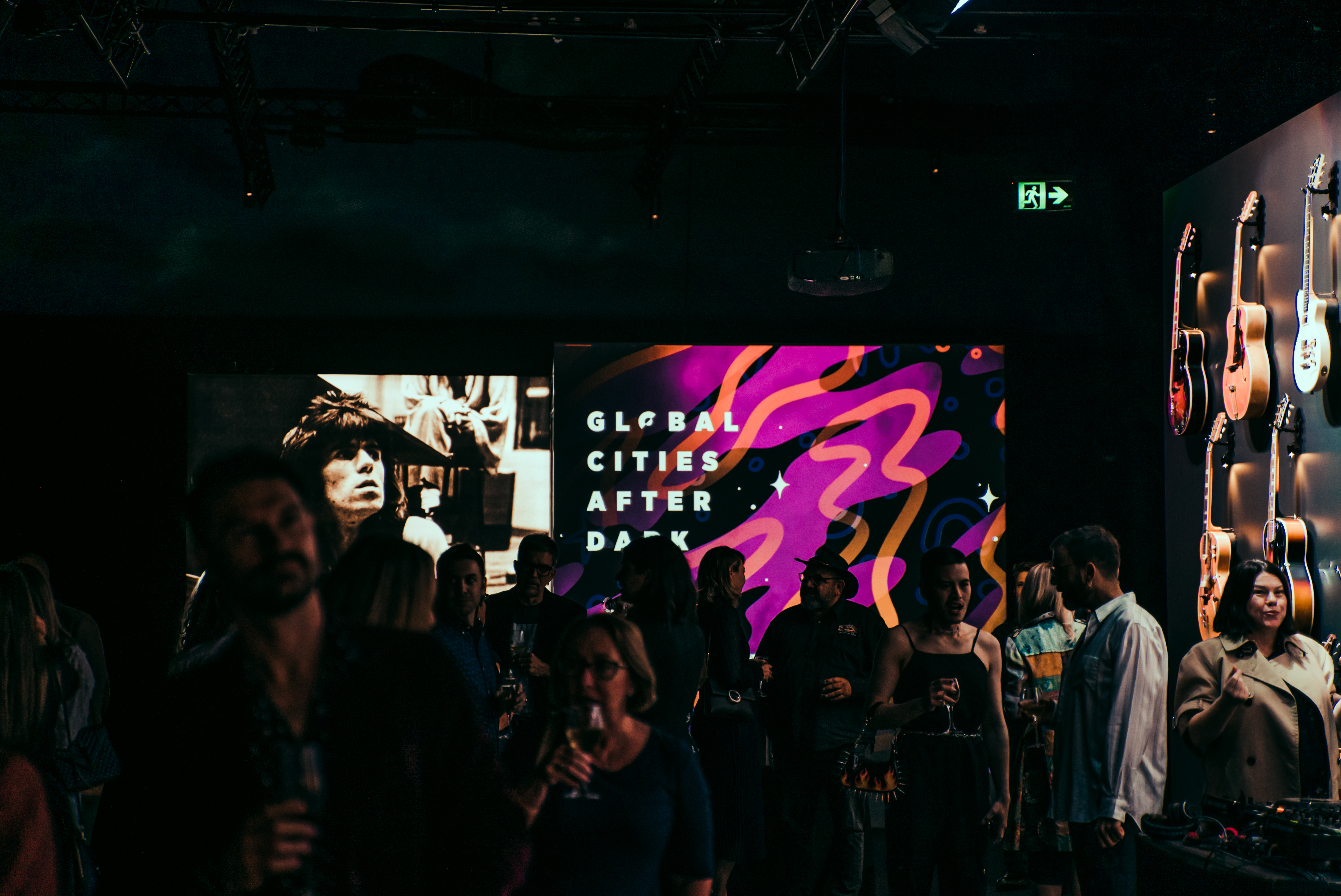A New Chapter for Sydney’s Nightlife Economy:
Government and Multiple Industries Come Together at Global Cities After Dark to Futureproof the 24-Hour Economy
“Because of the way NSW, in particular, has managed the pandemic, we are going to be the focus of the world.” Michael Rodrigues, NSW 24-Hour Economy Commissioner
The closing event for Global Cities After Dark celebrated a new exciting chapter for Sydney’s nightlife at the Powerhouse Museum with the implementation of the new NSW 24-Hour Economy Strategy.
As part of a week-long conference, local government and industry stakeholders from hospitality, music, entertainment, major events, tourism and transport came together for the first time since the start of the pandemic to collaboratively workshop ideas and thrash out a plan to future-proof the 24-Hour economy.
Key takeaways and action items included:
Michael Rodrigues – the NSW Government’s inaugural 24-Hour Economy Commissioner: “Because of the way NSW, in particular, has managed the pandemic, we are going to be the focus of the world. This wasn’t the case before the pandemic. It is now. We’re so used to looking overseas for solutions – looking to what’s happening in London or New York. Now it’s like, ‘Well, you’re the first ones out of this pandemic; you tell us how to do it.’ It represents a big opportunity. Now is the time to grab that opportunity and think, what does ‘local’ mean, and is a focus on local going to be a core part of how economies come out of the pandemic?”
Deputy Lord Mayor, Jess Scully – “Celebrate local can’t just be a slogan. We as government and enablers have to genuinely invest in local. We have to resist investing in the glamorous imports, and celebrate and fund the local.”
Mirik Milan, VibeLab and Former Amsterdam Night Mayor – “This is really a moment in time. Michael Rodrigues is joining a team of more than 50-night mayors and night commissioners all over the world. Nighttime governance is an emerging but fast-growing policy field, we’re only in the beginning and it’s really about collaboration, and earning everyone’s trust.”
Watch the in-conversation with the inaugural NSW 24-Hour Economy Commissione plus the two panels diving into the key takeaways from this week’s workshops here.
Major Events & Tourism Workshop Highlights and Takeaways:
- Sydney needs creative and extraordinary experiences worth leaving the house for, all year round and right across Sydney, not just the CBD: “We need all of Sydney to love noise, because when we make art, we make noise.”
- Let’s hand the keys to local creatives and give them the power (and affordable spaces to live in the communities where they create) that leads to great things.
- Is there value in a creative crisis plan/think tank for the industry that involves education and development for younger creative people?
- Let’s prioritise cultural precincts and work towards tax incentives for proper investment in culture.
Key quotes:
Vince Kadlubek, founder and director of Meow Wolf [keynote speaker]: “The entirety of the night-time economy is inherently experiential. Music is not just a valuable economy. It’s the engine of culture. Music creates love, passion, attraction, a reason to live. And people want to spend money at night. If nobody’s out there spending money, no one will be investing in nightlife. All the money is in bed, wishing there was something to do.”
Morwenna Collett, diversity and inclusion advocate/accessibility consultant: “When I think of a bold, vibrant Sydney, I imagine a place where everyone is welcome and can participate in arts and cultural life. As audience members of course, but also as artists in whatever way they choose.”
You can watch the re-stream of Vince Kadlubek’s keynote here.
Live Music & Entertainment Workshop Highlights and Takeaways:
Emily Collins, Managing Director, Music NSW on rebuilding live music scene:
“We’ve really seen a shift in Government attitude towards live music from a policy perspective. This is an incredible opportunity for the industry to collaborate with the government and work together on strengthening the industry. It’s also about building relationships to help safeguard live music from policy fluctuations in the future. “
- Protection is critical for the venues that still exist in Sydney, we have limited cultural spaces so must ensure those that remain, survive.
- The role industry and government play in the implementation of the 24-Hour Economy strategy – and the critical need for increased industry collaboration, both formally and informally.
- The need for a contemporary music strategy in NSW to support industry growth, artist development (making new music stars in NSW), and entrepreneurialism for independent artists.
- The potential for a music industry liaison within NSW Police.
The dream future for Sydney’s music scene includes…
- Much more choice at night, of music and also other activities e.g. food
- Cultivating a culture of musical discovery
- 24-Hr transport and safe spaces
- Ability to utilise all kinds of buildings and public spaces for cultural activations
- Greater number and variety of event spaces
- More trust: in organisers, in patrons
- More and better standard of all-ages events and underage venues
- Money diverted away from pokies into music
- Better access to and amplification of multicultural music scenes.
- Financially stable career pathways for musicians and music workers
- De-linking of music and liquor culture so events aren’t reliant on alcohol sales for revenue
- More investment in risky and alternative cultural ideas
- Career and punter longevity – music is not just for the young
On diversity, Paulette Long, OBE, Music Publisher, Consultant and Deputy Chair, UK Music Diversity Task Force (London, UK), “I believe it’s the CEOs of organisations that need to be accountable for diversity. Without the CEO buying in and being interested, there isn’t going to be systemic change.”
Paulette continues, “For the first time, I‘m seeing two generations working on diversity and inclusion in the industry] simultaneously. There’s a lot of power in that. And it will create a lot of change.”
Insights from Paulette Long OBE keynote speech:
- Diversity + equality are key pressure points on the music industry right now. Entry level positions are available for minority groups but the pathways are not there to rise to senior levels. There is a glass ceiling effect.
- Data gathering is essential and empowering for fighting this.
- Diversity taskforces must identify exactly who is accountable in achieving equitable representation within their organisations in order to encourage lasting change.
You can watch the re-stream of Paulette’s keynote here.
Hospitality Workshop Highlights and Takeaways:
- Educating young people about careers in the hospitality industry is essential – moving beyond the perception of hospitality as just a side-gig. Chefs are an aspirational group, but there are many lesser-celebrated hospitality careers. And what will be the status/appeal of the ‘457’ visa going forward?
- Does NSW need a hospitality industry code of practice? This could create a unified goal between usually siloed parties and isolate bad operators.
- The industry needs to be aware of young people whose first year of legal drinking age was throughout 2020’s lockdown – how do we look after and welcome these people who might be 19 when they start visiting licensed venues?
- The industry should keep focusing on local suppliers as we rebuild after COVID – what is the hospitality industry’s equivalent of the Buy From The Bush campaign?
- Venues need to consider ways to diversify beyond “serving drinks and having a DJ play”, although creating unique experiences requires collaboration from the city and Government, plus people returning to work in the city.
- Ensuring safer journeys home after patrons leave venues is key. How can we build on the ‘Plan B’ campaign to encapsulate more than just a drink driving message? Multiple options for transport, late-night dining, zoned precincts with staggered closing times, etc. were all discussed.
You can watch the re-stream of Riyaaz Almani’s keynote here.
Transport and Health & Safety Workshop Highlights and Takeaways:
- Planning for the future needs to consider the following customer cohorts: Tourists and city visitors, 24-hour workers, night-time workers and employees.
- The opportunity areas include improving safety, mobility options (how can we leverage other transport modes and models) and better travelling between 24-hour hubs (creating a ‘neon grid’ for Greater Sydney).
- Safety after dark is a priority for the city. We can develop new lighting, design and technology innovations to ensure people get where they’re going safely.
- How do we make transport spaces more fun, dynamic and inviting all the time and especially at night, while still improving travel time? We need to think not just in terms of getting people from A to B, but thinking of transport hubs as community spaces that enable pleasure and social interaction.
The landscape in NSW has changed, with more flexible work, travel outside peak hours, an increase in ‘active transport’ like cycling and the easing of the lockout laws. Let’s use data smartly to open up new opportunities for future transport.
You can watch the re-stream of Mark Curran’s keynote here.
The team at VibeLab are now compiling the outputs, actionable takeaways and best practices highlighted throughout the week. These will be published in the Global Cities After Dark Sydney 2021 Future Proofing Report. We anticipate that this report will be published in early June.
Global Cities After Dark Sydney is proudly sponsored by the NSW Government, City of Sydney and Powerhouse Museum through the Powerhouse NSW Creative Industries Residency Program. The sector specific workshops are created in collaboration with Night Time Industries Association (Hospitality) and MusicNSW. (Live Music and Entertainment)


